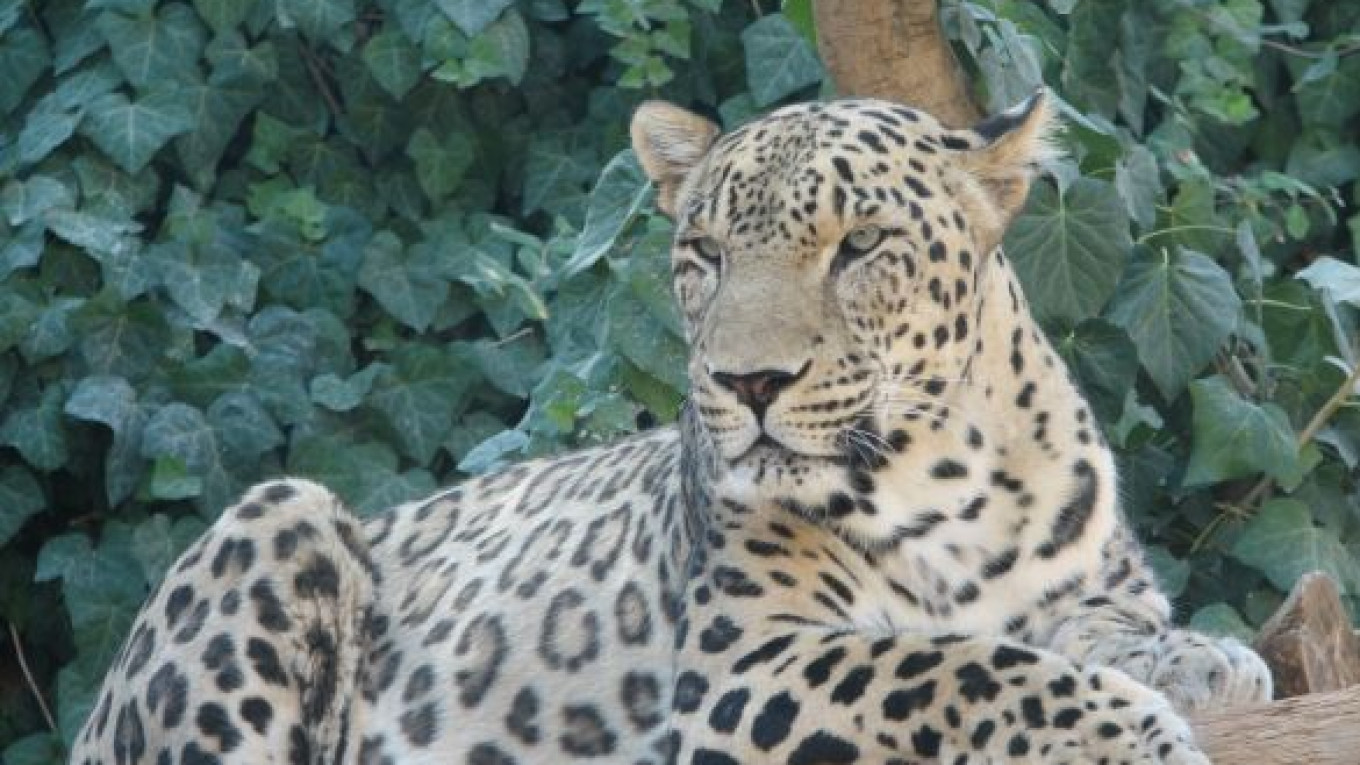Leopards may be reintroduced to the North Caucasus by next year.
A survey expedition by experts from the World Wide Fund for Nature and the Russian Academy of Sciences last weekend marked out a temporary enclosure that will hold the animals before their final release.
Three to four "individuals" are likely to be moved into a fenced area in a remote part of the Caucasus Biosphere Reserve to allow them to acclimatize to local conditions before being released to roam wild across a 100,000-hectare area in the western North Caucasus sometime next year, expedition leader Anatoly Kudatkin told the Moscow Times.
"That's our secret," Kudatkin said when asked for an exact date for the release. "But I promise when it happens we'll let you know."
Conditions in the reserve, which straddles the Krasnodar region and the republics of Agydeya and Kabardino-Balkaria, are "ideal" for the predators, Kudatkin said.
The release will be the culmination of 25 years of work toward re-establishing a breeding population of the big cats in the region.
The Caucasian, or Persian, leopard — the largest leopard subspecies — can grow to 2.5 meters long and weigh up to 60 kilograms. It once roamed from eastern Turkey to western Afghanistan and was common in the North Caucasus up until the 20th century.
Four leopards — two males from Turkmenistan and two females donated by Iran — have been living at a rehabilitation center in the Sochi National Park since 2009.
Those four, however, will never see freedom. Only their offspring will be released into the wild.
Scientists say they have chosen a spot a long way from any human settlements, but are briefing local people anyway — partly in a bid to deter potential poachers.
Russia is home to two leopard subspecies, the Caucasian and the Amur. Snow leopards, a different species, are more closely related to tigers.
A Message from The Moscow Times:
Dear readers,
We are facing unprecedented challenges. Russia's Prosecutor General's Office has designated The Moscow Times as an "undesirable" organization, criminalizing our work and putting our staff at risk of prosecution. This follows our earlier unjust labeling as a "foreign agent."
These actions are direct attempts to silence independent journalism in Russia. The authorities claim our work "discredits the decisions of the Russian leadership." We see things differently: we strive to provide accurate, unbiased reporting on Russia.
We, the journalists of The Moscow Times, refuse to be silenced. But to continue our work, we need your help.
Your support, no matter how small, makes a world of difference. If you can, please support us monthly starting from just $2. It's quick to set up, and every contribution makes a significant impact.
By supporting The Moscow Times, you're defending open, independent journalism in the face of repression. Thank you for standing with us.
Remind me later.


